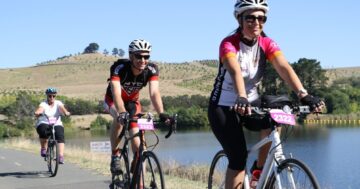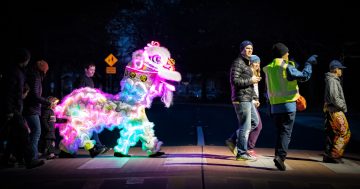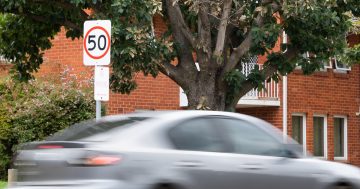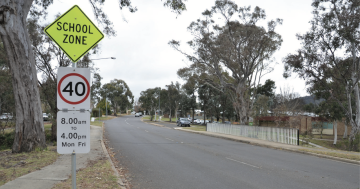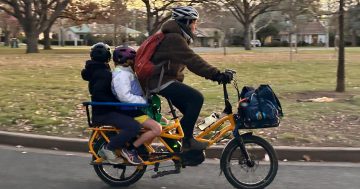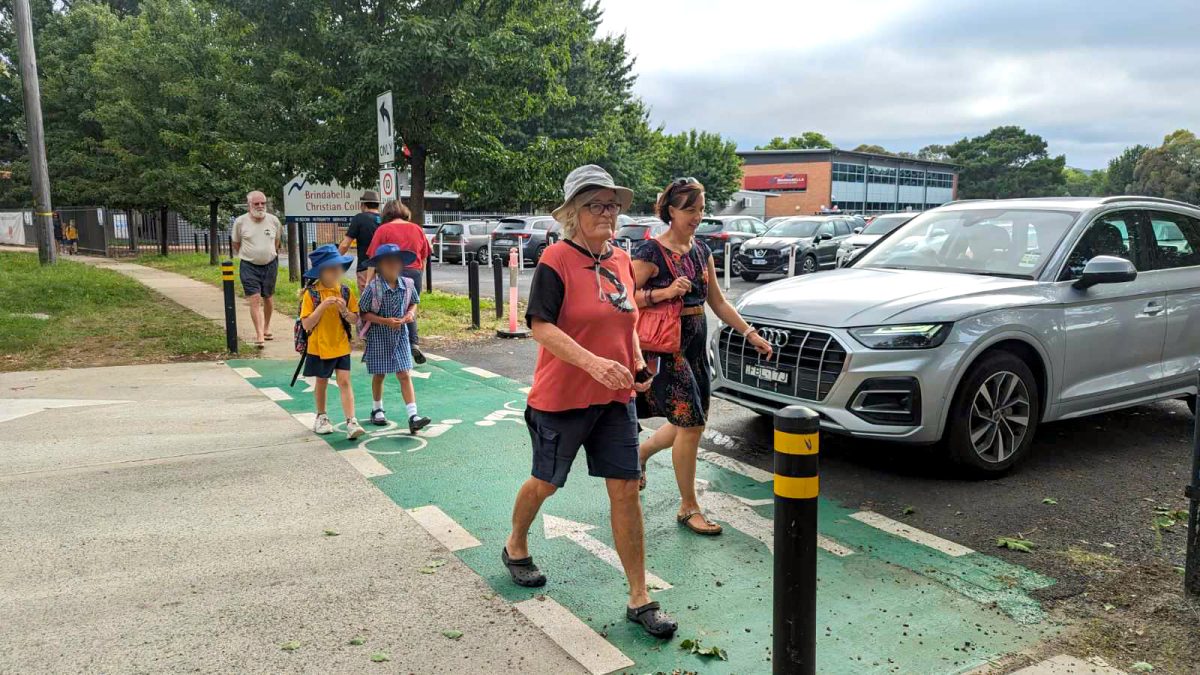
Is 40 km/h not slow enough? Lyneham parents are asking. Photo: Kate Bradney.
A long-running campaign to lower Canberra’s residential speed limits to 30 km/h has received fresh backing, this time from parents in Lyneham.
Kate Bradney, with kids in the Lyneham Primary School, is on a mission to make the morning school run safer.
She founded the local group ‘Walk Cycle Lyneham and Beyond’ to encourage active travel in the area, and in December last year, launched the ‘Lyneham Primary School Bike Bus’ together with Paris Lord from ‘Canberra by Bike’.
Every Wednesday morning, a rolling convoy of kids on bikes set off from the North Lyneham Shops, accompanied by Kate and Paris and often a few parents, en route to Lyneham Preschool, Lyneham Primary School and Brindabella Christian College.
“Some people meet us at the start, others literally wait along the route, and the older kids often ride with us for a little bit before they peel off and finish the trip by themselves,” Paris explains.
“It’s a convoy of joy. We play loud music, we sing and ring our bells, all that kind of thing.”
It’s inspired by a worldwide ‘bike bus’ movement, and the idea is safety in numbers.
“At its peak, it attracts around 50 kids,” Kate says.
However, the bike bus entered a hiatus around May of this year due to a near miss outside the Brindabella Christian College car park.
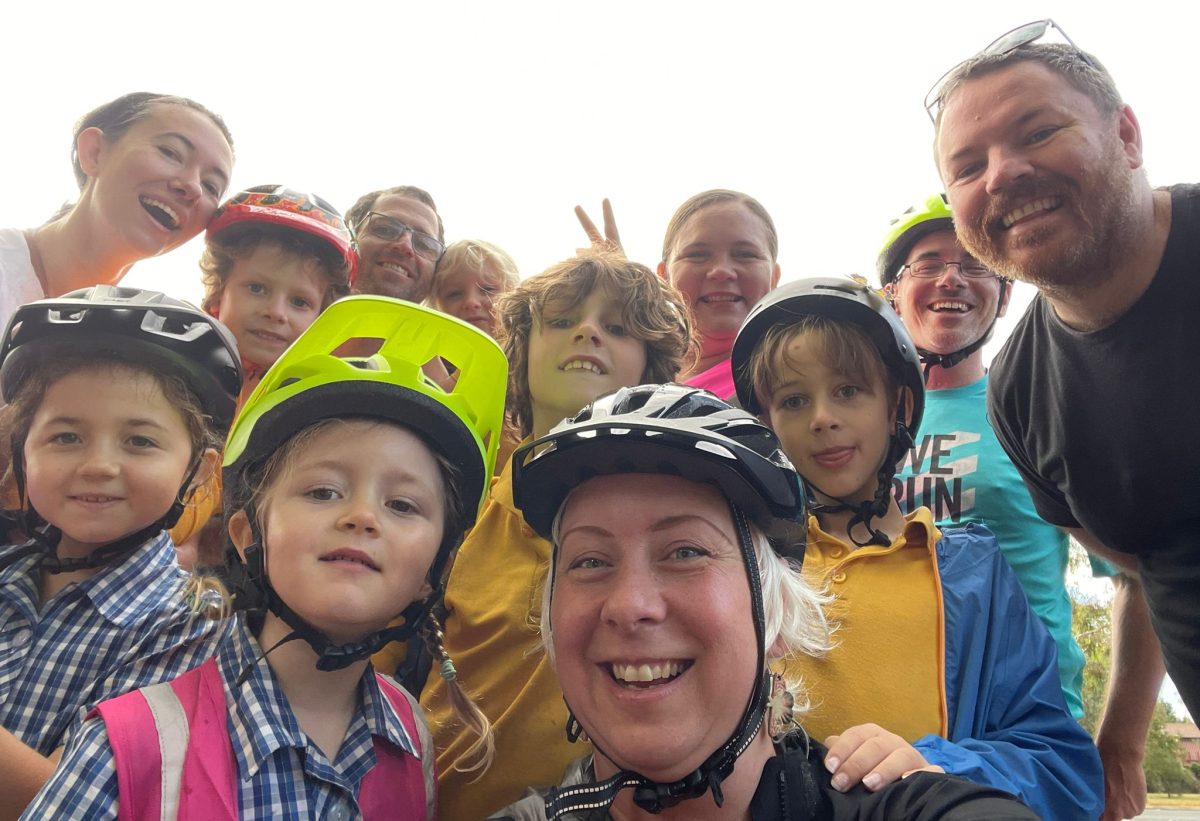
Children ready to board the ‘bike bus’. Photo: Kate Bradney.
“One driver who dropped their children off then pulled out in front of children riding and claimed they didn’t see them,” Kate says.
“In another instance, earlier in the term, a driver illegally dropped their children in a bus zone on Brigalow Street, then crossed onto a footpath to try turning right and skipping traffic.”
Now, with the weather warming up again, Kate and Paris have decided to relaunch the bike bus with “a lot of improvements and strategies to keep kids safe”, including volunteers to stop and direct traffic around the problematic car park.
But they’re also campaigning for lower speed limits around Lyneham as a longer-term solution.
“The kids and the community in Lyneham just love to ride – it’s a big part of our culture – but it’s becoming more and more dangerous to ride, and this is a way of bringing the joy back into riding and … also attention to how much we need more traffic calming measures,” Kate says.
The petition for 30 km/h streets is nothing new.
In 2021, the World Health Organisation (WHO) launched a campaign, arguing slower streets would “save lives and protect all who use them, especially the most vulnerable, like pedestrians, cyclists, children and older people and people with disabilities”.
“When streets are safe, people walk and cycle more,” the website reads.
In the lead-up to last year’s ACT Budget, Pedal Power ACT again lobbied the government to drop the speed limit from 50 km/h to 30 on roads without separated cycle lanes or off-road cycle paths.
ACT Greens leader Shane Rattenbury responded by saying the focus should be on improving cycling infrastructure and “being kind to each other on the roads”.
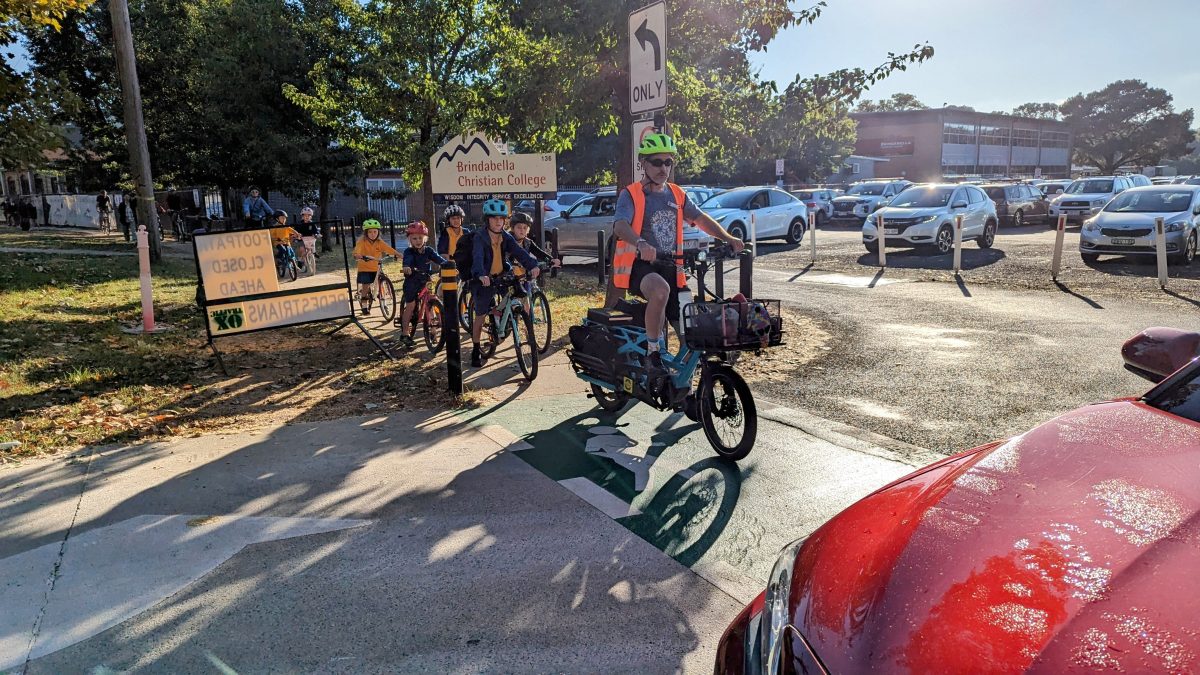
The bike bus was put on pause after an incident outside the Brindabella Christian School car park. Photo: Kate Bradney.
Kate and Paris, however, offered Lyneham as the place to see how it could work.
“We think Lyneham would be a really nice place to pilot 30 km/h speed limits,” Kate says.
“We think it’s time it was tried here in Canberra because there are other jurisdictions in Australia that are doing it now, and it ultimately results in a better quality of life,” Paris adds.
“Traffic noise is lower, people feel safer … and it’s a way of getting people outside and moving in their neighbourhoods.”












